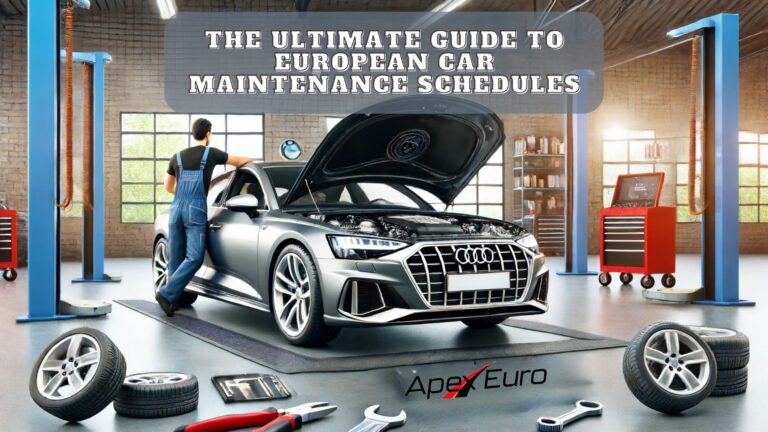Maintaining a European car involves a disciplined approach to ensure longevity and optimal performance. This guide provides essential insights into the maintenance schedules specifically designed for European vehicles.

Understanding the Basics- Before diving into specific schedules, understand that European cars often come with high-performance features that require careful maintenance. Adhering to the recommended schedules helps preserve these features and ensures your car runs smoothly.
Oil Changes- Frequency of Oil Changes:
For most European cars, oil should be changed every 5,000 to 10,000 miles depending on the model and oil type. Always use manufacturer-recommended oil grades to ensure engine health.
Brake Inspections- Routine Brake Checks:
Inspect your brakes at least twice a year or every 10,000 miles. Check for pad wear, rotor thickness, and brake fluid levels. Replace any component that does not meet the manufacturer’s specifications.
Tire Rotation and Alignment- Keeping Tires in Check:
Rotate tires every 5,000 to 7,000 miles to ensure even wear. Alignment should be checked annually, or if you notice uneven tire wear, which can significantly affect handling and fuel economy.
Timing Belt Replacement- Critical Timing Belt Checks:
Timing belts in European cars should be replaced between 60,000 and 100,000 miles. Failure to replace the timing belt can lead to severe engine damage.
European Car Maintenance Schedules